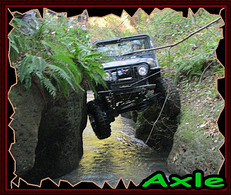Quote
Which Synthetic is Best for Engine Oils?
"Can engine oils be formulated from polyalkylene glycols?"
Polyalkylene glycols or PAG base oils are a type of synthetic base stock. While synthetic engine oils are becoming increasingly common, they usually are not formulated with this type of base stock. Most of them are polyalphaolefin or PAO base oils, with some being synthetic blends. Blending of synthetic oils is a precise science and is normally done to aid in the formulation with additives. Thatís not to say that PAG oils canít be made into engine oils.
There have been studies done on using these types of synthetics for all types of automotive lubricants including gear, transmission and crankcase oils. Synthetic oils across the board offer a wide array of benefits in any application. More often than not they have a higher oxidative tolerance so they last longer in service.
In mobile equipment that operates in extreme temperature environments, synthetics work well as they generally have a higher viscosity index. The viscosity index is a measure of how much viscosity changes over a temperature spectrum. The higher the value, the less the viscosity is affected by a change in temperature.
These synthetics have their own unique characteristics that set them apart from other synthetic oils. PAGs have excellent lubricity and a high viscosity index (typically 100 to 200, depending on the formulation). They also have great thermal and oxidative stability. This equates to longer service life and functionality in high-temperature applications.
Along with benefits, there are also drawbacks for any synthetic. These types of synthetics have the dubious reputation of not being miscible with mineral oils. PAG and standard mineral oils do not mix well and form an almost snot-like substance when they come in contact with each other. Not only can they not mix with mineral oils, but certain polymers and paints are also incompatible with these fluids. PAGs can cause the shrinking or swelling of some seal materials, which can lead to leaks and/or allow contamination into the system.
Before putting a PAG oil into any machine (engine, gearbox, hydraulic system, etc.), make sure all the materials are compatible. Likewise, if the system was previously filled with a mineral oil, the system should be flushed to ensure that all the mineral oil is removed to avoid any of the previously mentioned problems.
So while synthetics are becoming more and more widespread, different synthetics are used in different applications. While not traditionally used in engine oils, PAG oils are very common in refrigeration oils, brake fluids and various gear oils. One of the biggest risks when switching from a mineral oil to a synthetic is the incompatibility. This should always be kept in mind.
"Can engine oils be formulated from polyalkylene glycols?"
Polyalkylene glycols or PAG base oils are a type of synthetic base stock. While synthetic engine oils are becoming increasingly common, they usually are not formulated with this type of base stock. Most of them are polyalphaolefin or PAO base oils, with some being synthetic blends. Blending of synthetic oils is a precise science and is normally done to aid in the formulation with additives. Thatís not to say that PAG oils canít be made into engine oils.
There have been studies done on using these types of synthetics for all types of automotive lubricants including gear, transmission and crankcase oils. Synthetic oils across the board offer a wide array of benefits in any application. More often than not they have a higher oxidative tolerance so they last longer in service.
In mobile equipment that operates in extreme temperature environments, synthetics work well as they generally have a higher viscosity index. The viscosity index is a measure of how much viscosity changes over a temperature spectrum. The higher the value, the less the viscosity is affected by a change in temperature.
These synthetics have their own unique characteristics that set them apart from other synthetic oils. PAGs have excellent lubricity and a high viscosity index (typically 100 to 200, depending on the formulation). They also have great thermal and oxidative stability. This equates to longer service life and functionality in high-temperature applications.
Along with benefits, there are also drawbacks for any synthetic. These types of synthetics have the dubious reputation of not being miscible with mineral oils. PAG and standard mineral oils do not mix well and form an almost snot-like substance when they come in contact with each other. Not only can they not mix with mineral oils, but certain polymers and paints are also incompatible with these fluids. PAGs can cause the shrinking or swelling of some seal materials, which can lead to leaks and/or allow contamination into the system.
Before putting a PAG oil into any machine (engine, gearbox, hydraulic system, etc.), make sure all the materials are compatible. Likewise, if the system was previously filled with a mineral oil, the system should be flushed to ensure that all the mineral oil is removed to avoid any of the previously mentioned problems.
So while synthetics are becoming more and more widespread, different synthetics are used in different applications. While not traditionally used in engine oils, PAG oils are very common in refrigeration oils, brake fluids and various gear oils. One of the biggest risks when switching from a mineral oil to a synthetic is the incompatibility. This should always be kept in mind.
Please refer to other posts I have made in regards to mixing synthetic & mineral oils. As this article suggests, it depends on the synthetic as to whether it is compatable.

 Help
Help








